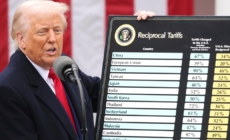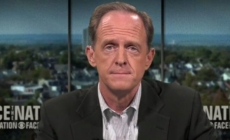-
Dodgers’ Shohei Ohtani Could Pitch Before All-Star Break - 5 mins ago
-
Trump’s tariffs can stay in place for now amid legal battle, appeals court rules - 8 mins ago
-
Aaron Rodgers hits the field at the Pittsburgh Steelers camp — Will it work in Pittsburgh? | Speak - 15 mins ago
-
Dakota Johnson shares dating deal-breaker while promoting ‘Materialists’ film - 22 mins ago
-
Brush fire in Burbank prompts evacuations, swells to 8 acres - 38 mins ago
-
How to Watch Peru vs Ecuador: Live Stream CONMEBOL South American 2026 World Cup Qualifiers, TV Channel - 44 mins ago
-
Sen. Pat Toomey says Trump trade war has potential to cause harm - 49 mins ago
-
Should Jason Kidd leave the Dallas Mavericks to go coach the New York Knicks | Speak - 58 mins ago
-
Elizabeth Hurley marks 60th birthday with nude photo feeling ‘blessed’ - about 1 hour ago
-
Marines on streets of L.A. bring peril, questions - about 1 hour ago
Can California Fire Victims Sue State Farm for Dropping Coverage?
As wildfires ravage areas of Los Angeles in California, destroying thousands of homes and businesses, the decision last year by its largest insurer State Farm to reduce its number of policyholders in at-risk areas has caught fresh attention.
State Farm CEO Denies Hardin wrote in a March 2024 letter to California Insurance Commissioner Ricardo Lara that the insurer’s strained finances forced their hand in reducing exposure to risk, and higher rates alone weren’t enough.
“We have been reluctant to take this step, recognizing how difficult it will be for impacted policyholders … We are striving to minimize the impact of the necessary actions that must be taken,” Hardin wrote.
A spokesperson for State Farm told Newsweek previously: “Our number one priority right now is the safety of our customers, agents and employees impacted by the fires and assisting our customers in the midst of this tragedy.”
Newsweek emailed spokespeople for State Farm for further comment.
State Farm was not alone. Other insurers in California have also cut their policies to reduce exposure to risk. According to the California Department of Insurance (CDI), seven out of 12 of the Golden State’s top insurers cut coverage in the state over the past four years.
Photo Illustration by Newsweek/Getty Images
Lara, when announcing new consumer-focused insurance market regulations in December, said: “Californians deserve a reliable insurance market that doesn’t retreat from communities most vulnerable to wildfires and climate change.”
Does the decision to drop policyholders expose State Farm and other insurers to any legal risk from former customers in light of these devastating fires in Los Angeles? Newsweek asked experts for their views. Here’s what they said.
Dave Jones: State Farm Didn’t Cancel Policies—They Chose Not to Renew
Every state in the United States has given home insurers the right to decide whether to write or renew insurance.
State Farm did not cancel policies. They chose not to renew policies, which insurers are allowed to do under the laws of every state.
Dave Jones is the director of the Climate Risk Initiative at UC Berkeley’s Center for Law, Energy and the Environment (CLEE) and a former Senior Fellow at The ClimateWorks Foundation. Jones served two terms as California’s Insurance Commissioner from 2011 to 2018.
Gary Kwasniewski: Little to No Recourse
The general answer is that it depends on the details surrounding how and why State Farm did not renew homeowners policies. However, the grounds for unlawful renewals are very limited by statute.
The law usually cannot force an insurance company to undertake the risks of offering insurance to anyone unless the insurance company voluntarily agrees to take on the risk and offers insurance coverage.
Insurance policies are special types of contracts, but contracts nevertheless. To engage into a contract all parties must voluntarily agree to be bound.
In my opinion, homeowners whose State Farm policies were not offered to be renewed by State Farm most likely have little to no recourse.
Gary Kwasniewski is a partner and attorney with Los Angeles law firm Viau & Kwasniewski where he specializes in insurance coverage and insurance bad faith cases.
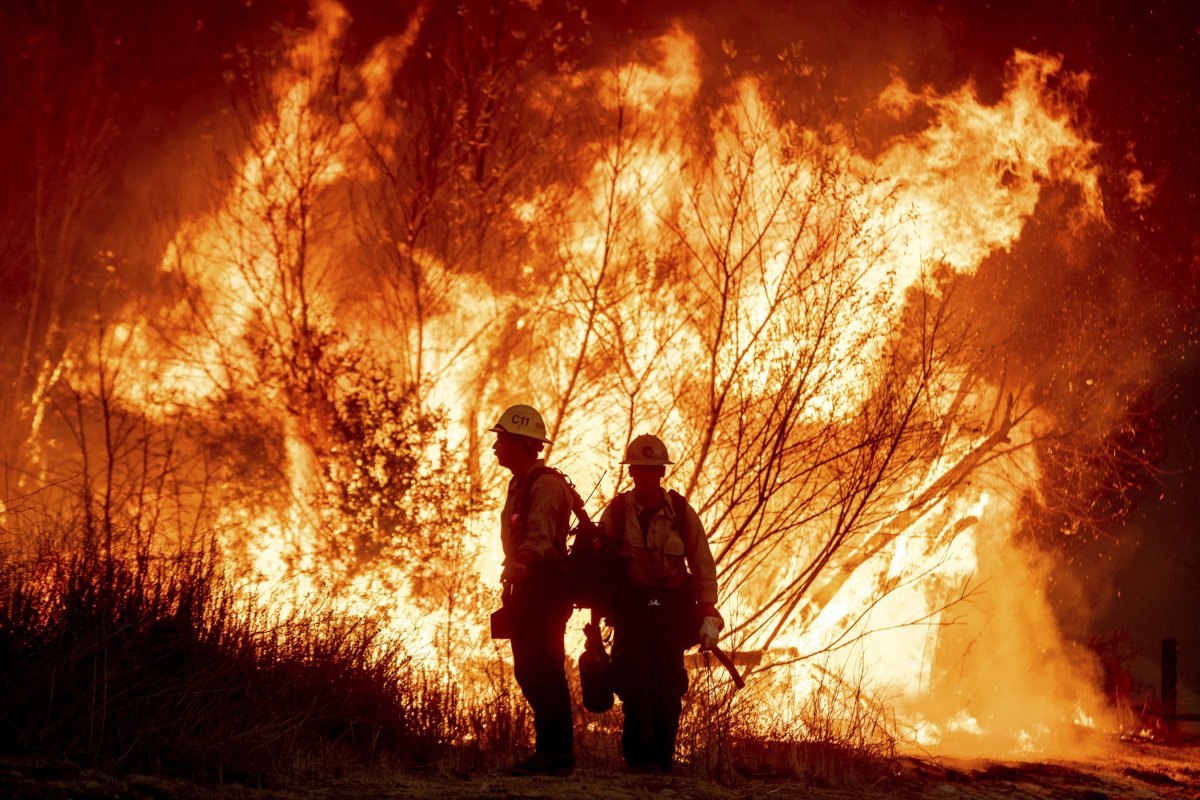
AP Photo/Ethan Swope
Lars Powell: State Farm’s Actions Look Legal
Assuming State Farm followed its policy provisions, its actions were legal. If the law is applied fairly and accurately, they will not face any legal exposure.
By non-renewing a handful of very expensive houses in Pacific Palisades, they were able to reduce their exposure and continue insuring many more modest homes in California.
Lars Powell is director and senior research professional at the University of Alabama’s Center for Risk and Insurance Research.
Carmen Balber: Some Homeowners Got No Explanation
If an insurance company’s non-renewals are arbitrary or discriminatory they are illegal. State Farm’s non-renewals felt that way to the many homeowners who got no explanation for why they were non-renewed when their neighbors weren’t.
Unfortunately, California Insurance Commissioner Ricardo Lara did not investigate State Farm’s actions.
It’s important to note that, although we have no public data, it is likely that most homeowners who were dropped by State Farm obtained coverage elsewhere.
California law prevents insurance companies from non-renewing homeowners in and around a declared fire emergency area for a year after the fire.
So, for those State Farm homeowners whose policies have not yet been nonrenewed, they will be able to retain their policies for another year.
We need a law to ensure that Californians who do the right thing and meet state home-hardening and brush clearance standards have a right to purchase insurance from any company.
That is how we’ll make California neighborhoods safer from fires and get homeowners insured again.
Carmen Balber is executive director Consumer Watchdog, which is based in Los Angeles.
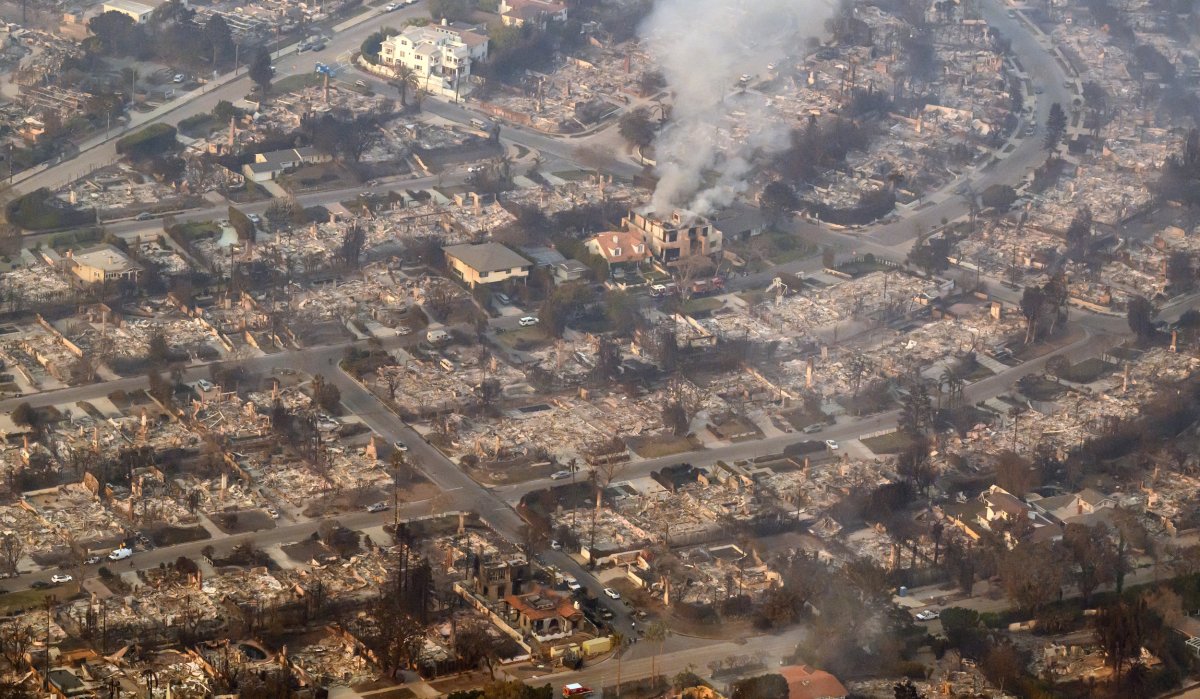
JOSH EDELSON/AFP via Getty Images
Joel Laucher: Most Cases, No—But There May Be Exceptions
In most cases, I don’t believe there is a basis for litigation.
The exception may be if the basis for the nonrenewal was unjust, e.g. an aerial image that is inaccurate that is used as a basis for the nonrenewal despite the policyholder’s factual rebuttal of the determination within the 75-day notice. That would be case specific in which case a policyholder may want to consult an attorney.
Certainly, it is understandable that longtime policyholders, who have paid their premiums year after year and most of whom have never filed a claim, would feel upset to receive a notice of nonrenewal from their insurer.
Are these nonrenewals legal?
It is generally accepted that insurers have the freedom to set their underwriting standards, which define eligibility for new business and renewal of existing policies.
As long as your insurer is not personally discriminating against you, they can set them as they wish.
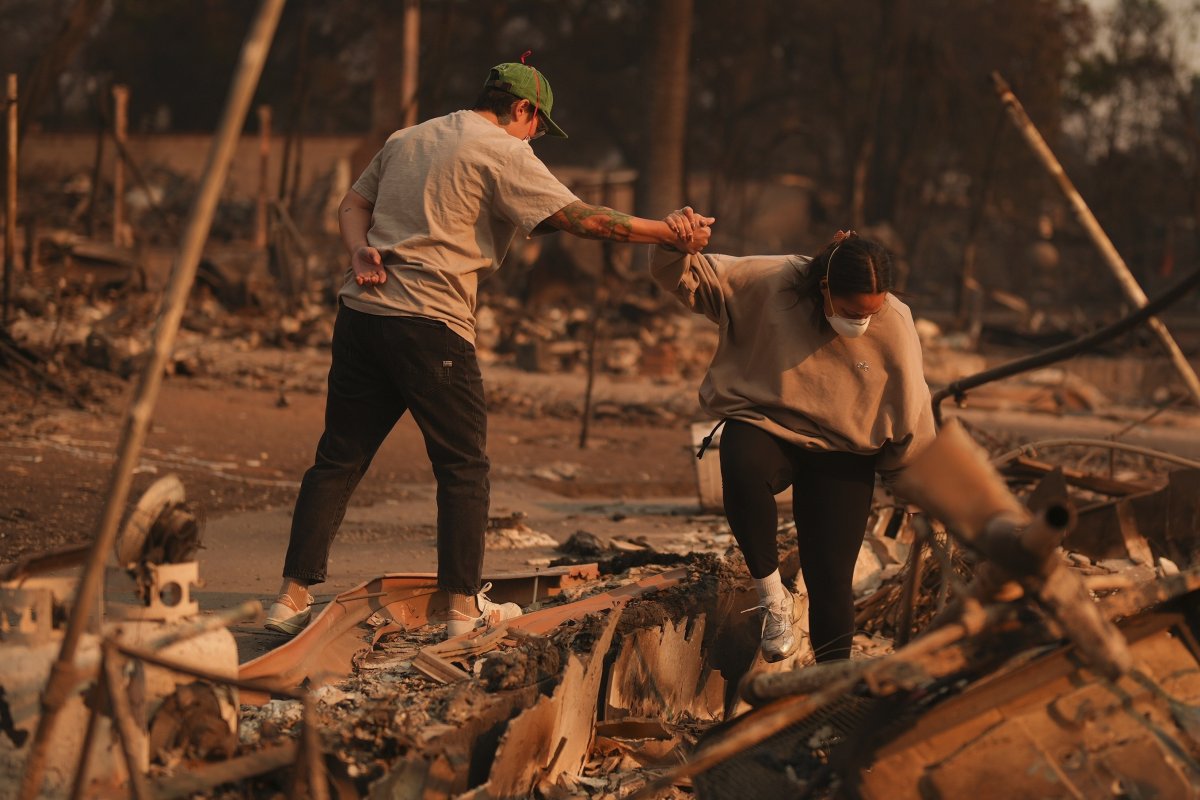
AP Photo/Eric Thayer
Those underwriting standards must be “specific, objective factors … and which have a substantial relationship to the insured’s loss exposure.” (California Code of Regulations, Title 10, Subchapter 3, Article 7.2, Section 2360.0(b).
Basically, the standards must not be unfairly discriminatory (California Insurance Code Section 1861.05(a)).
It has also been generally accepted that, at any point in time, an insurer can change those standards to make them more restrictive or less restrictive as long as the changes maintain objectivity, are risk-related, and are applied consistently without unfair discrimination. (In many cases in California, those changes might also require that the insurer file a rate change to reflect any new restrictions in the eligibility standards).
If an insurer determines that a policy shall be non-renewed, it must give 75 days’ notice and must state the specific reason for that decision. That reason must be consistent with the then-current underwriting guidelines (California Insurance Code Section 678).
It is the responsibility of the California Department of Insurance to determine if an insurer is adhering to these laws. Generally, any violations could result in penalties being assessed.
Policyholders who believe they have been non-renewed unfairly should contact the Department of Insurance.
But if they have been wrongfully non-renewed—meaning they were in compliance with the insurer’s underwriting standards at the time of renewal, and don’t receive the resolution they are seeking from the insurer or the CDI—they would have the right to seek their own legal counsel to pursue damages they may have suffered.
Joel Laucher is program specialist at United Policyholders. He is a former chief deputy commissioner for the California Department of Insurance where he had a 35-year career.
Source link

